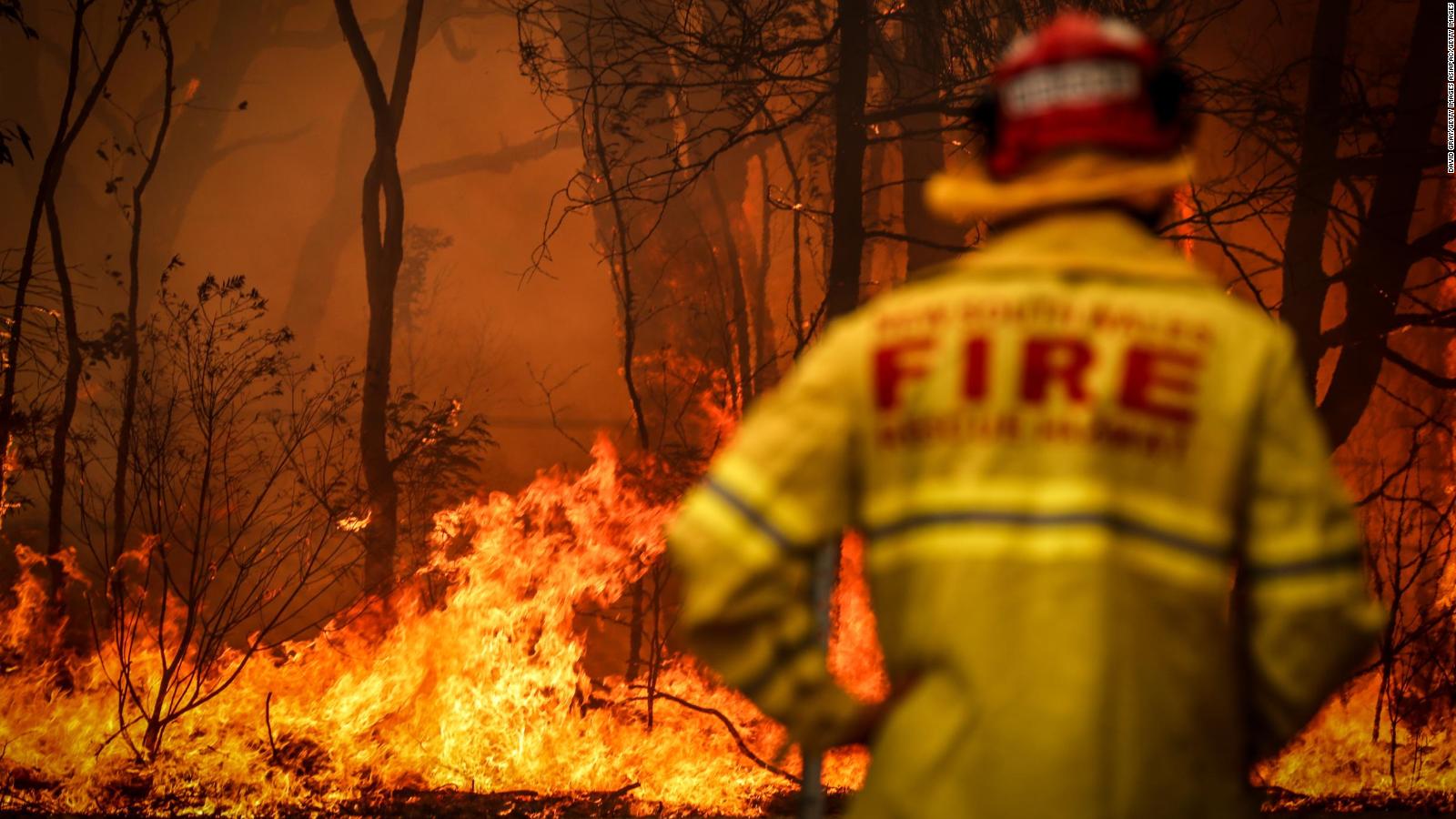Evacuations are underway in the state of Victoria and New South Wales, with authorities warning that weather conditions are expected to deteriorate significantly this weekend -- raising the fire danger even further.
The NSW Rural Fire Service has set up a "Tourist Leave Zone" from Batemans Bay in NSW down to the Victoria border. They are urging all visitors to evacuate before Saturday, when temperatures above 40 degrees Celsius (104 degrees Fahrenheit), dry conditions and ferocious winds are expected to heighten the risk of further blazes.
"These will be dangerous conditions," the fire service warned. "Do not be in this area on Saturday."
There were similar weather conditions on Tuesday, which led to massive fires spreading out of control. Seven people died from the fires within 24 hours. Conditions improved slightly on Thursday -- creating a small window of opportunity for people to evacuate before the situations worsens again Saturday.
Residents on Thursday are heeding the warning. Highways out of Batemans Bay and Nowra, both close to large fires, are packed with long lines of cars waiting to leave.
Tens of thousands of people are estimated to be in the region, home to coastal towns and villages that swell in population during summer.
Evacuation is more difficult in some towns where roads have been closed and the communities cut off. In Victoria, there are 24 such isolated communities, according to state Premier Daniel Andrews -- including the beach town of Mallacoota, where thousands of residents fled their homes to seek refuge at the seaside on Monday.
State authorities are working to evacuate residents in these cut-off areas. In Mallacoota, a navy vessel will make multiple trips on Friday to transport up to 800 residents and tourists to an unspecified safe location, Andrews said Thursday. Air evacuations could also happen once dense smoke begins to move away from the area.
Prime Minister Scott Morrison said Thursday that the federal government was also sending resources when requested by states, including additional funding and military support from the Australian Defence Force. He warned that many areas were difficult for emergency personnel to safely access, and urged residents to remain calm and patient.
The Australian bushfires have been burning for months now, and aren't likely to stop anytime soon -- Australia is still in the early months of summer, and temperatures typically peak in January and February. "The fire season still has a long time to run," Morrison said in a news conference.
A total of 17 people have died across the country so far, with the most damage concentrated in NSW. Across the state, nearly 1,300 homes have been destroyed and another 442 damaged, according to the Rural Fire Service. Fires have consumed entire towns and ripped through bushland; the strong winds frequently change directions, which fan the flames and carry embers far distances.
The changing winds are forecast to continue from Friday into Saturday, hampering firefighting efforts and causing uncontained fires to spread, according to CNN meteorologists. Meanwhile, air quality will continue to deteriorate in Canberra, Sydney and Melbourne, large urban hubs smothered in thick smoke and haze. Conditions aren't expected to improve until Monday, when rain could bring some relief.
Australia typically has a fire season during the dry, hot summer -- but this year's weather conditions are more extreme, leading to more devastating blazes. The country is gripped by one of the worst droughts in decades, and a heatwave broke nationwide records in December.
Experts say climate change has worsened the scale and impact of the fires, and many have accused the Morrison administration of not doing enough to address the climate crisis. In December, a woman dumped the remnants of her fire-ravaged home in front of the Australian parliament, accusing Morrison and lawmakers of failing to act.
On Thursday, Morrison said the government aimed to "meet and beat our emissions reduction targets" -- but added that it would stick to "sensible" policies that "don't move toward either extreme."
"The suggestion that there is a single policy, whether it be climate or otherwise, (that) can provide a complete insurance policy on fires in Australia -- well, I don't think any Australian has ever understood that was the case in this country," he said.
Bagikan Berita Ini
















0 Response to "Thousands of people flee Australia's south coast as deadly bushfires rage"
Post a Comment